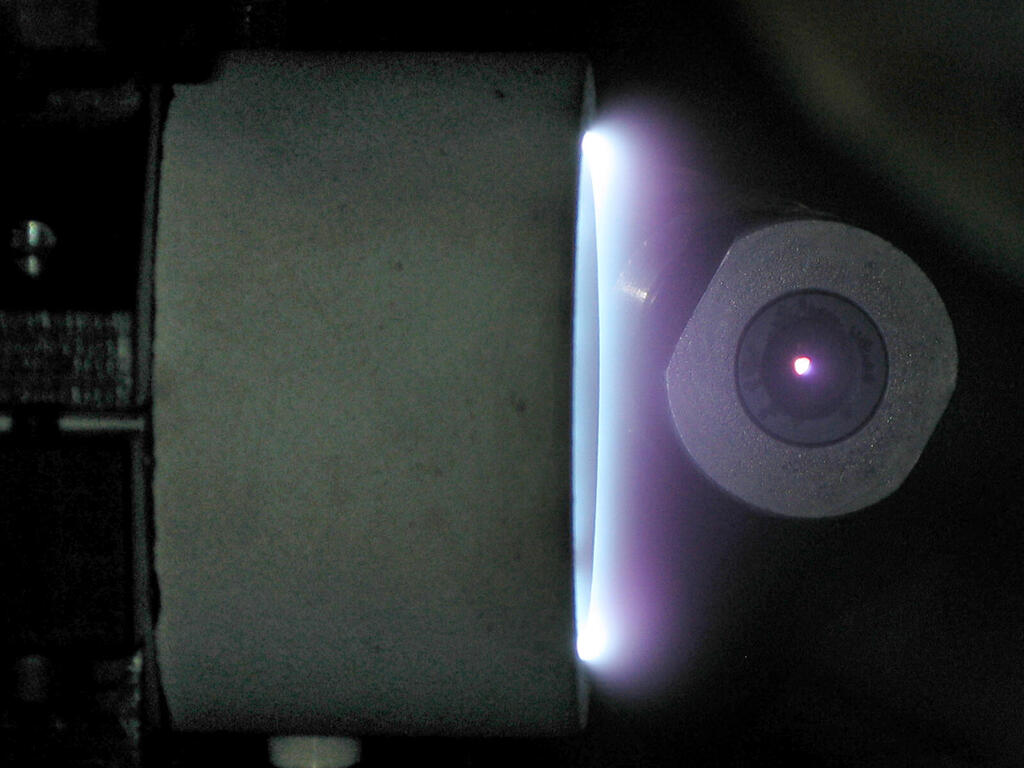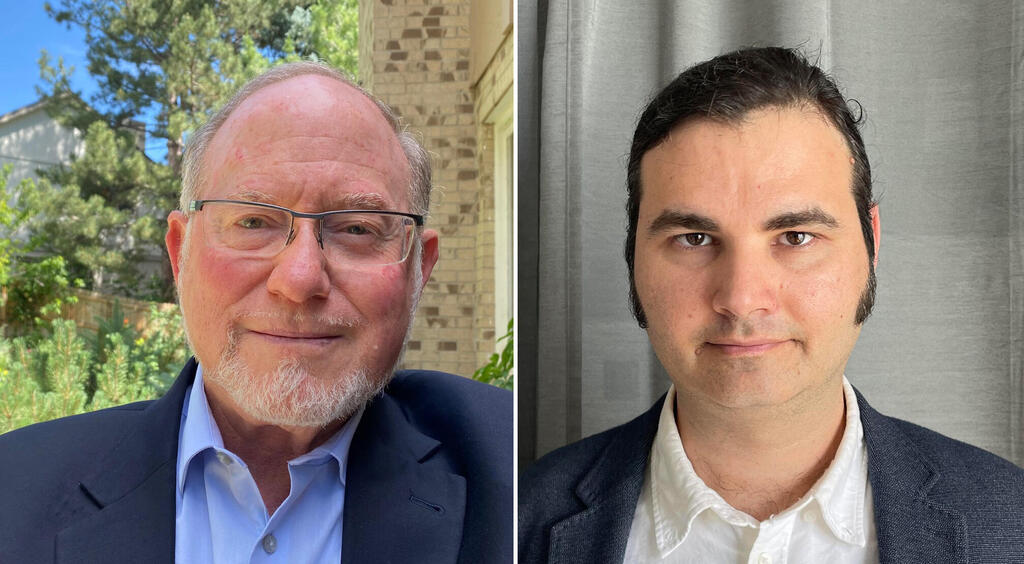More than rocket science: Space Plasmatics aims to power green rockets in space

The space tech startup is developing electric rockets “for the tiniest spacecraft you can imagine,” says CEO
More satellites are filling up the night sky, from SpaceX’s broadband-providing Starlink constellation to various Earth observation microsatellites, launched to help monitor changes in climate and vegetation. “Never have there been so many objects sent into space. It’s a huge paradigm shift,” Space Plasmatics co-founder, CTO, and CEO Dr. Igal Kronhaus told CTech in an interview. Over the past two years alone, there has been a massive increase in the number of satellite constellations being launched and deployed, such as SpaceX’s Starlink and others. “While a few years ago, most satellites were large, and very expensive to produce, now they’re getting cheaper and smaller,” he noted. The industry predicts about 14,000 new small satellites will be launched into space by the end of the decade, with that being a conservative estimate. And that is precisely where Space Plasmatics comes in. It hopes to provide new mobility solutions with its plasma thrusters.
Unlike many in the space tech industry, Kronhaus began his career in academia, specializing in aerospace engineering and physics at the Technion Institute of Technology, where until recently he lectured on plasma physics and electric space propulsion, bringing along his expertise from European universities and from the former Soviet Union scientists who were the original developers of this technology. Now, as the co-founder of Space Plasmatics, he has a new goal ahead: developing a plasma propulsion solution for the “tiniest spacecraft you can imagine.”
More than rocket science
Space Plasmatics – a startup that functions almost entirely virtually – was established in 2021, and based on numerous patents Kronhaus filed while conducting research at the Technion. The company has two main products: a miniature thruster, roughly the size of a finger, its nanoVAT; and a larger version, the microHET, roughly the size of a tennis ball. The thrusters are part of an entire electric propulsion system that contains a power supply and a propellant (fuel) system, but remain small in size.
“Our plasma thrusters are rockets powered by electricity. Plasma is the fourth state of matter, and is an ionized gas that is so hot that electrons are ripped off of the atoms. This results in a gaseous mixture with freely-moving electrons and ions. Our thrusters first generate the plasma from the propellant, and then accelerate the ions via the electric field to produce thrust. This creates a very efficient rocket,” he explained. “It’s a lot more than rocket science.”
Green transport
The electric propulsion system is powered by solar cells, and the propellants use a non-hazardous “green” gas, he explained. And many types of civilian satellites need exactly these types of green mobility solutions. Thrusters, however, can only be used in the vacuum-type environment that exists within space. The company uses the Technion’s vacuum chambers facility to test out its technology, which can imitate space-like conditions. “We reach about one billionth of our atmospheric pressure in there, and it allows us to test out this version of in-space propulsion,” he said.
And while small satellites are limited by how much power they can produce, this issue is resolved by using the low-power plasma thrusters, which save on energy and allow the small satellite to power on its other devices – such as its antennas and camera – while maneuvering or “thrusting.”
Currently, the startup has received funding from the Israel Innovation Authority. Space Plasmatics hopes to have its finished product ready within 18 months of closing its seed round, and then conduct an in-orbit demonstration in roughly two years.

The company employs six people, and operates in a virtual model. Kronhaus co-founded the company with Andy Pearlman, a serial entrepreneur. It also has subcontractors from other smaller companies, which are helping produce its thrusters. Its advisory board includes top tech experts in the Israeli, Latin and North American industries, including Christopher Hoeber of CFH Engineering; Keith Volkurt of the Satellite Consulting Group, and Patricio Northland, formerly of AT&T Latin America.
A changing landscape
The Israeli space industry is a constantly changing landscape, and there aren’t exactly a lot of space tech startups in Israel. While Israeli companies originally needed to develop spy satellites for security means – and there are several large blue-and-white companies in this arena like Rafael Advanced Defense Systems or Israel Aerospace Industries – the landscape is changing, with several new players in the commercial market. “I’m an outsider,” commented Kronhaus. “I’m from academia, but the industry welcomed me. It possesses a certain openness and a growing interest in new technologies to innovate in this sector.” However, government support for Israeli space tech companies still lags behind that of larger economies such as in Germany or France, he noted.
And Israel is an expert when it comes to building smaller satellites. “Since they’re significantly cheaper to produce, smaller satellites can be launched in great numbers, to form larger constellations, and provide better coverage in more locations,” he said, adding that many startups hope to track minute changes in Earth’s atmosphere, climate, oceans, industrial pollution, and agriculture by using these smaller versions. “Many companies are engineering cheaper launchers as well, and we’re seeing companies like SpaceX and others come online, which is a real change in the ecosystem.”
Yet with more objects floating around space comes the risk of more collisions. And that is yet another reason why Space Plasmatics wants to focus on offering its unique technology to provide better propulsion solutions to prevent catastrophe from happening. The company – while leveraging its own American parent company to access US markets – plans on conducting most of its development activity here in Israel. “I want my company to stay in Israel. It’s our chance to shine.”

